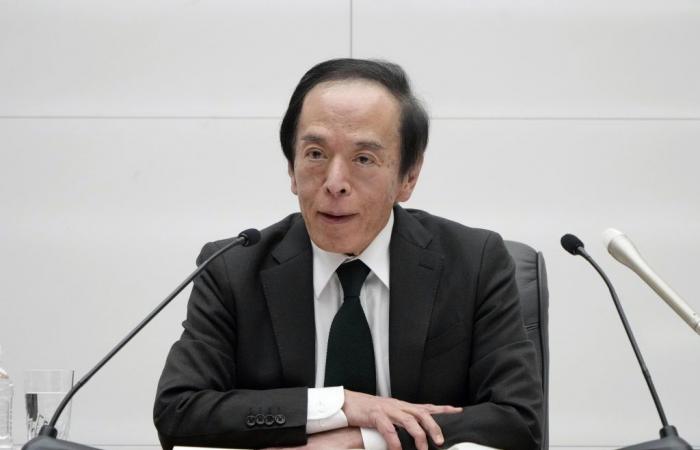Tokyo (EFE).- The Bank of Japan (BoJ) announced a cut in its massive purchases of public debt bonds, in a new step towards its progressive monetary normalization after its interest rate increase last March.
The Japanese central bank decided by an 8-1 vote “that it will reduce its purchases of Japanese government bonds to ensure that long-term bond yields take shape more freely in financial markets,” the lender said in a statement at the end of their monthly two-day meeting.
The BoJ did not give specific details of the update of the purchase volume, which currently stands at around 6 trillion yen (about 35.4 billion euros), and called a meeting of the internal group in charge of bond markets, with a date yet to be decided. , where the “future conduct” of acquisitions will be debated, he said.
A “detailed plan” of the reduction by the bank
The Japanese lender will collect opinions from market participants and other experts and determine, ahead of its next monthly meeting scheduled for July 30 and 31, “a detailed plan for reducing the amount of its purchases for the next year or two,” he added.
Although the Japanese central bank chose to maintain short-term reference interest rates at 0.1% at the end of its monthly meeting, maintaining the gap with the rates of other global reference entities, its decision reducing its bond purchases was apparently welcomed by the financial markets as one more step towards its progressive monetary normalization after more than a decade of ultra-flexibility.
Nikkei index rise
The Japanese reference index, the Nikkei, which remained in negative territory during the first section awaiting the decision, rose sharply at the start of the second section, with an increase of 0.7% in the first fifteen minutes of the second half.
The decision to cut its Treasury bond program comes at a time when the yield on long-term Japanese sovereign debt was at its highest levels for more than a decade, raising concerns about borrowing costs in the Asian country.
Japanese economy with signs of weakness
Regarding its decision to maintain short-term rates, the BoJ argued that the Japanese economy has been showing signs of weakness, despite a moderate recovery, in a context in which both consumption, exports and production remain stagnant, making It is necessary to continue paying attention to the risks that exist inside and outside Japan’s borders.
The Japanese central bank also alluded to the current inflation trend in the archipelago, which has been increasing in a range of between 2 and 2.5% in recent months, while the improvement in employment and wages has improved only moderately. .



